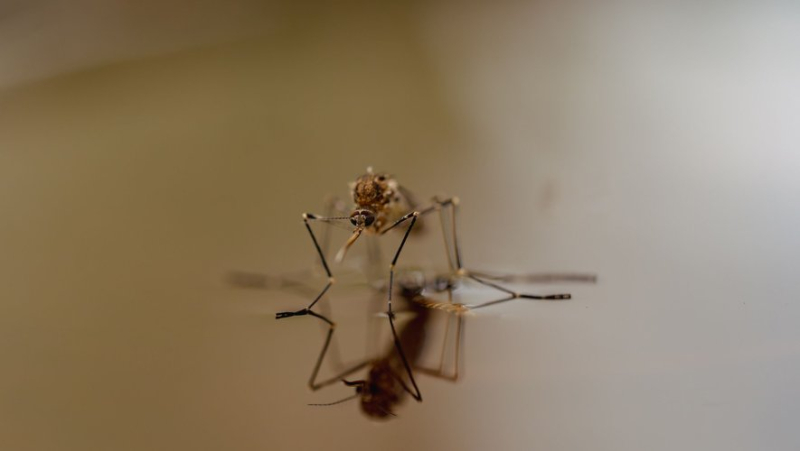West Nile virus: two indigenous cases of human infection identified in Vauvert and a dead horse in Gard

Le virus est transmis par les moustiques (essentiellement du genre Culex). Envato Elements – Illustration
The patients' health status does not require hospitalization. However, the Gard prefecture reports that a horse recently died of the same disease.
The West Nile virus (or Nile Virus) has struck in the Petite Camargue, in Vauvert. Transmitted by mosquitoes (mainly of the genus Culex) that become infected by biting infected wild birds, this virus can manifest itself by a fever accompanied by headaches and backaches, muscle pains, cough, swollen lymph nodes in the neck, and often a rash, nausea, abdominal pain, diarrhea and respiratory symptoms.
Two cases detected during a blood donation
The Gard prefecture and the ARS announce that “as part of the systematic screening carried out during blood donations, two indigenous cases of human infection with the West Nile virus were recently identified in Vauvert. The health of these patients did not require hospitalization. The residents of Vauvert were informed by the town hall. In order to avoid being infected, they must ensure that they strictly follow the measures to protect themselves against mosquito bites."
At the same time, the ARS has“strengthened the West Nile virus infection surveillance system by raising awareness among Occitanie establishments and health professionals about the identification and screening of any suspected case. Finally, measures to secure blood and organ donations are active and will remain so until the end of the high-risk season, in the Gard and Occitanie."
Deceased horse
The Gard departmental directorate for the protection of populations (DDPP) has also received confirmation of a positive case of the West Nile virus concerning a horse, in the commune of Vauvert, whose first symptoms dated back to the beginning of August. This horse has since died of this disease. Several other cases have been identified in parallel in Hérault (in the process of being confirmed) and in Bouches-du-Rhône, which demonstrates the active circulation of the virus in Camargue.
The circulation of the West Nile virus is currently the subject of a dual surveillance system in France, in humans and horses. This surveillance network was set up in Camargue in 2001 and then extended to Corsica and other Mediterranean departments. It involves many partners under the responsibility of the Ministries of Health and Agriculture. They are implemented by the French Blood Establishment (EFS) and the Biomedicine Agency (ABM).
Recommendations issued by the prefect and the ARS
In this context, the prefect of Gard and the general director of the ARS Occitanie call for compliance with the following vigilance measures.
For human health – In most cases, human West Nile virus infection is asymptomatic, meaning that the patient does not have any symptoms. In some cases, the disease manifests itself as a flu-like syndrome (fever, headache, muscle aches) sometimes accompanied by a rash. Anyone experiencing these symptoms should consult their doctor.
As this disease can affect humans following a bite from an infected mosquito, people living in the Camargue are advised to: fight against the proliferation of mosquitoes around the home by eliminating stagnant water that constitutes their breeding grounds (e.g. empty and store small containers away, cover water tanks with a cloth or mosquito net, etc.), wear covering and loose clothing, especially in the evening, as Culex mosquitoes are mainly active at night; use repellents, recommended by your pharmacist, on clothing and exposed areas of skin.
For sensitive people (newborns, pregnant women, people with compromised immune systems), sleep under a mosquito net. Protect yourself against mosquito bites: wear loose, light clothing that covers your arms and legs, apply a repellent product to exposed areas of skin, respecting the contraindications and, if necessary, protect yourself with mosquito nets in areas where mosquitoes are particularly numerous.
For the health of equines – The Prefect of Gard calls for vigilance among breeders and veterinarians in the equine sector so that they implement preventive insecticide treatment in risk areas, vaccinate horses against this virus and report any case of sick horses. The disease manifests itself in equines either in a pure febrile form, often inapparent, or in a nervous form (dejection, tremors, neurological disorders); Spontaneous recovery usually occurs within 3 to 4 weeks, but severe forms with paralysis and death can occur. For more information, see this link or this link.




